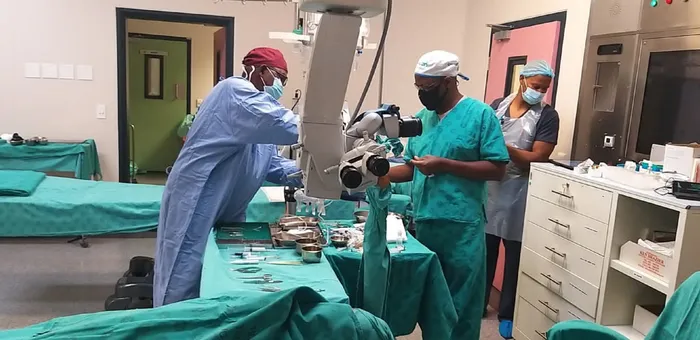Development trust rolls out eyecare project to NC communities

Ophthalmic operations were performed at the Dr Harry Surtie Hospital in Upington. Picture: Supplied
SIOC-Community Development Trust (SIOC-CDT), in partnership with the Northern Cape Department of Health (NCDoH) and the South African National Council for the Blind (SANCB), sponsored the provision of 395 reading spectacles and 160 cataract surgeries that were performed in the ZF Mgcawu District earlier this year.
SIOC-CDT has completed the first tour of its free eyecare project to provide screening, testing and treatment for vision-impaired patients residing in rural areas of the Northern Cape.
The trust stated that it would invest over R1 billion in socio-economic and community-development projects to its beneficiary communities in Gamagara, Tsantsabane, Ga-Segonyana and Joe Morolong in the Northern Cape, as well as Thabazimbi in Limpopo.
SIOC-CDT said that the project would be divided into quarterly tours, where an amount of just under R1 million would be donated towards cataract surgeries, screening, awareness programmes and reading glasses.
Ophthalmic operations were performed at the Dr Harry Surtie Hospital in Upington by a qualified ophthalmologist from member organisations through private partnerships as part of the cataract outreach programme.
SIOC-CDT CEO Vusani Malie said that the launch of the project was delayed due to the Covid-19 pandemic.
“The project was supposed to be launched in April last year and end in March 2021, but due to the health and safety delays during the pandemic last year, we delayed the first tour until March 2021,” said Malie.
“We have exceeded our goals and are delighted at the progress made to date. We wish to thank all of the partners that have worked with us on this vital eyecare project. Thousands of South Africans suffer from blindness because they cannot afford treatment or do not have access to adequate services. Support from corporations and civil society is so essential in assisting to bridge this gap.”